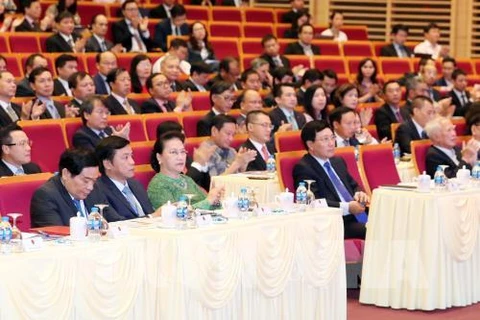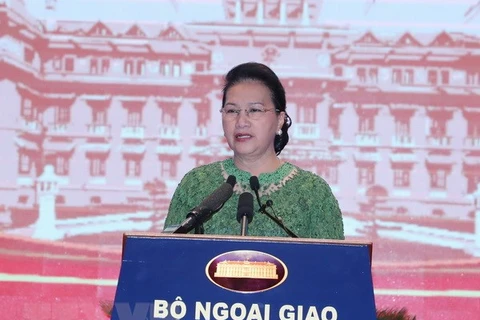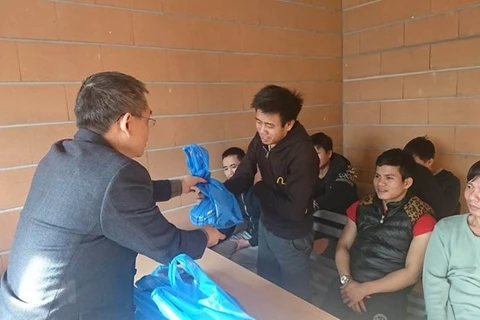Hanoi (VNA) – The 30th Diplomatic Conference concluded in Hanoi on August 17 after five days of sitting.
In his closing remarks, Deputy Prime Minister and Foreign Minister Pham Binh Minh said the conference was a resounding success, helping improve the role of Vietnam’s diplomatic sector.
The five-day event reviewed the recent implementation of external affairs, analysed the regional and international situation as well as opportunities and challenges facing Vietnam, and proposed some countermeasures.
He stressed that Party and State leaders highly appreciate the achievements of the diplomatic sector, which, they said, have significantly contributed to maintaining a peaceful and stable environment for national development, and enhancing Vietnam’s international status.
The delegates also outlined some of the sector’s key tasks for the time ahead, including researching and defining the direction for external relations in a modern context; putting development at the centre of diplomatic activities with more heed paid to the needs of residents, businesses, and localities; intensifying multilateral diplomacy; making preparations for Vietnam’s ASEAN Chairmanship in 2020 and the country’s candidacy for a seat at the UN Security Council for 2020-2021; and building modern diplomacy.
At the closing ceremony, the conference approved a resolution and an action plan, showing their commitment to materialising the outcomes of the conference and concretising the resolve of the diplomatic sector to implement the Resolution adopted at the 12th National Party Congress.
Party General Secretary Nguyen Phu Trong delivered a speech at the opening of the Conference on August 13, in which he mentioned difficulties and challenges the diplomatic sector could face in the near future.
The external environment in the years to come will be complicated and unpredictable, and there will be challenges to keeping a peaceful and stable environment, he said.
The protection of the country’s sovereignty and territorial integrity along with national interests at sea will also face new challenges. The situation will remain complicated while the risks of conflicts have not yet been pushed back.
The country’s external economic activities could see new challenges, including rising protectionism in major export markets and trade wars between powerful countries. The role of major multilateral institutions like the World Trade Organisation (WTO) and the Asia-Pacific Economic Cooperation (APEC) forum is being threatened. The development of science and technology is posing new issues for trade and foreign investment.
Multilateral external work will also encounter more challenges. Currently, the role of multilateral institutions is declining while in the region, the Association of Southeast Asian Nations (ASEAN) is still facing difficulties in reinforcing its central role.
The Party leader urged the diplomatic sector to continue reforming its mindset in external work and pursue the country’s external policy of independence, self-reliance, peace, cooperation, development, multilateralisation and diversification of relations, and active international integration.
He suggested capitalising on all favourable factors to contribute to building multilateral mechanisms, while canvassing countries’ support of Vietnam’s candidacy to become a non-permanent member of the UN Security Council in the 2020-2021 tenure.
Apart from improving the efficiency of external activities, especially economic cooperation and collaboration in politics and defence-security, it is necessary to better implement the country’s policy of active international integration and promote economic diplomacy for sustainable development.
The Party chief also emphasised improving the quality of research work and strategic forecasts in addition to strengthening coordination between ministries, relevant departments and localities, particularly between diplomacy and defence-security in implementing the Party and State’s external affairs and international integration.-VNA
VNA
























